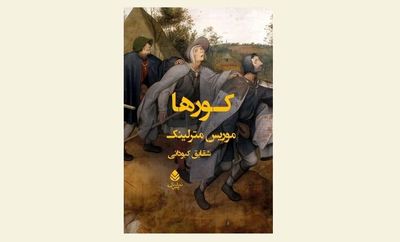Written in 1890, the book was published by the major Tehran-based publisher Qatreh.
“The Blind” is an intense one-act play, which was one of the pieces mentioned in a list of Maeterlinck’s most characteristic plays. This list was highlighted in the speech to honor Maeterlinck with the Nobel Prize in 1911.
The play was originally written in French, and later was translated into several different languages, including English and German.
The piece is not only a study of the human condition in general but it appears to confront its reader with the effect of hope on the latter.
Unlike most other theatrical pieces, “The Blind” does not introduce its readers to readily shaped characters, but twelve de-personalized beings.
These beings were not provided with names but titles describing their general condition, for instance, the eldest blind man.
This method of writing gives an audience or theater professional an opportunity to read between the lines and interpret the piece according to personal desire. Maeterlinck has since been considered the founder of a new type of dramatic writing known as Symbolism.
Parallels have often been drawn with Samuel Beckett’s “Waiting for Godot”, which was produced in the mid-20th century and appears to construct a similar world of waiting and hoping, which is evident in “The Blind”.
At least two other Persian translations by Akram Rezai-Bayandor and Mojtaba Ashrafi have previously been published.
Source: Tehran Times

